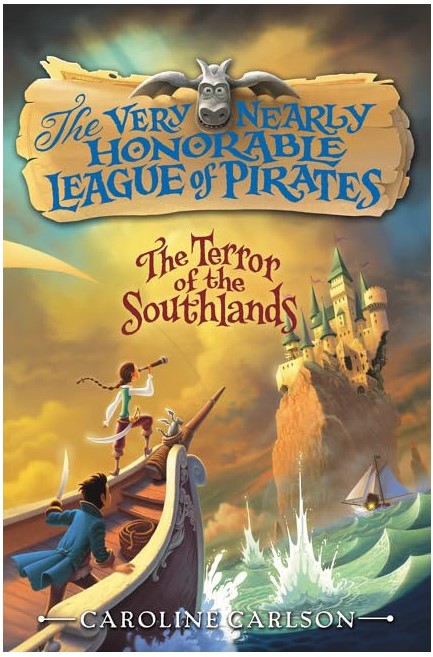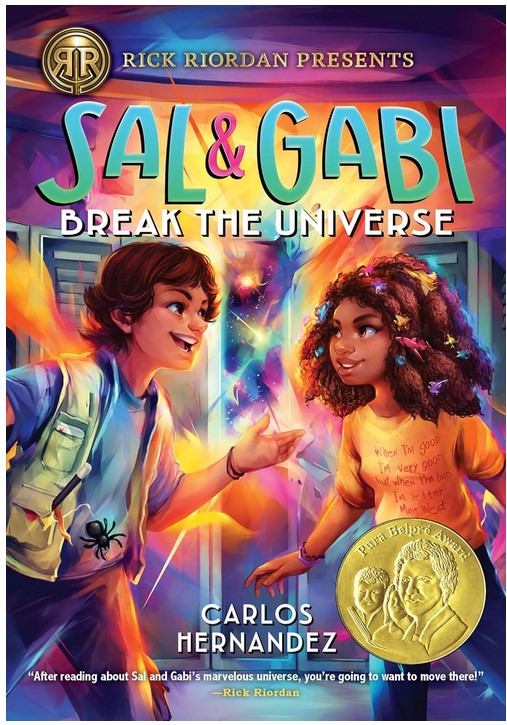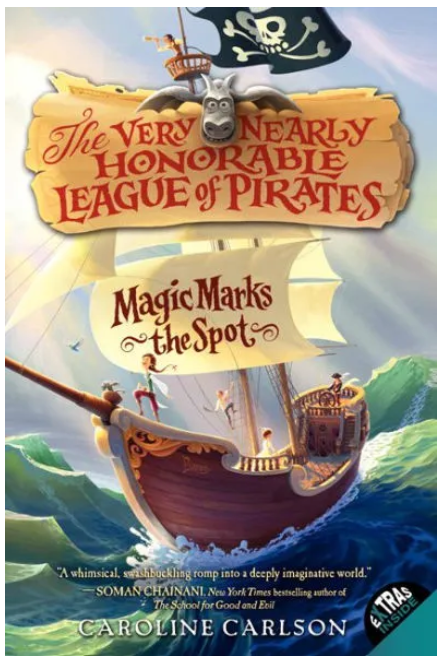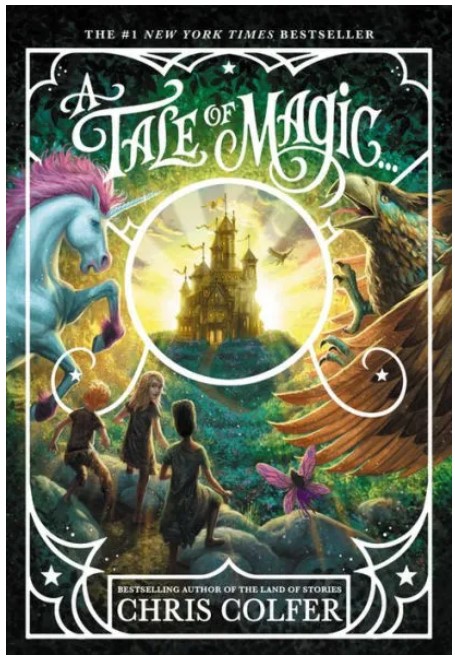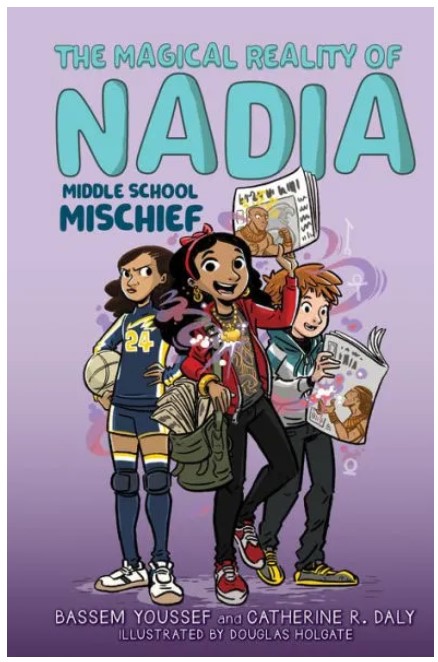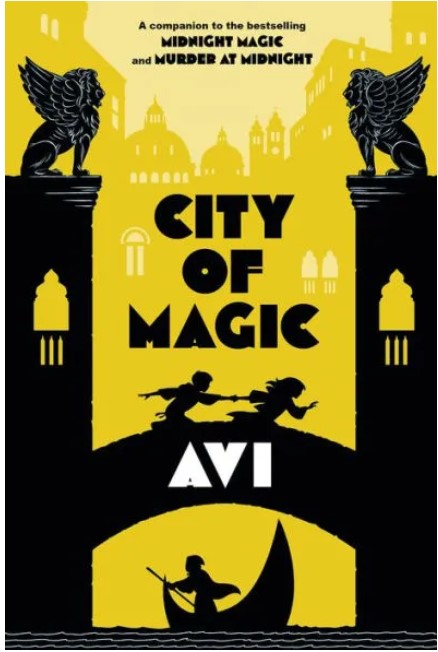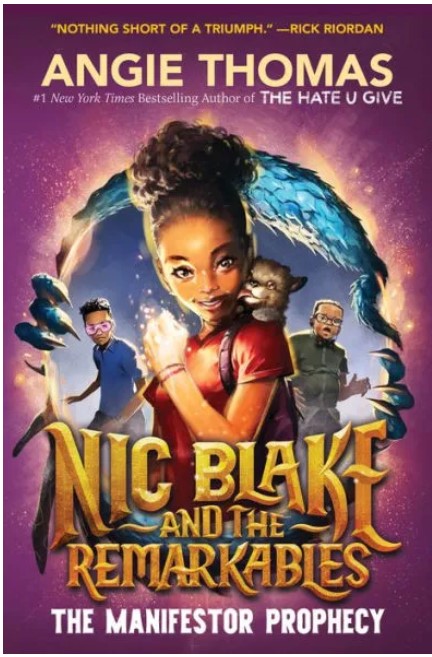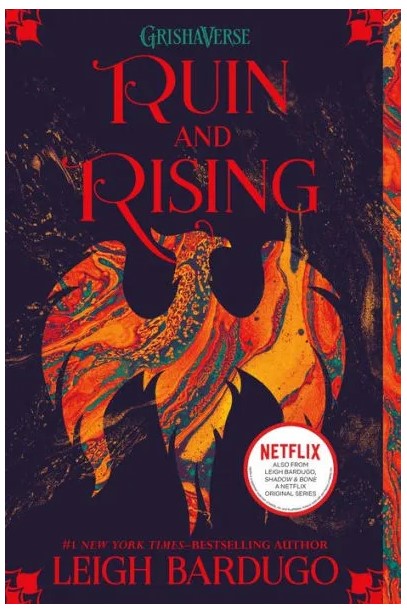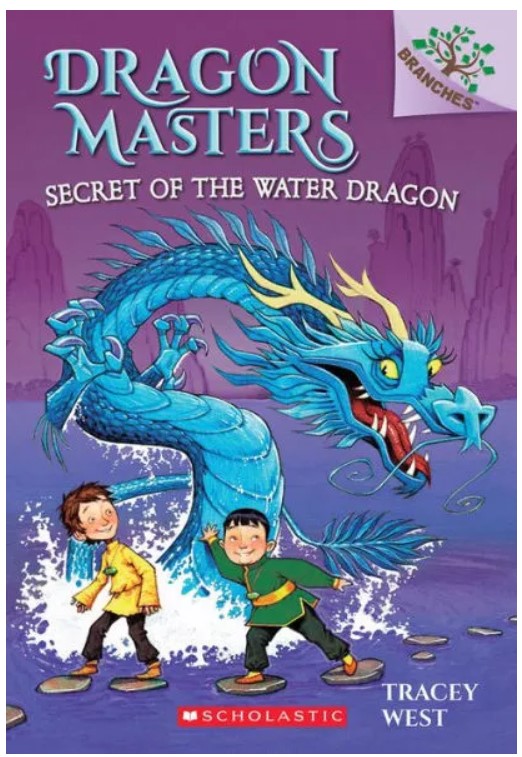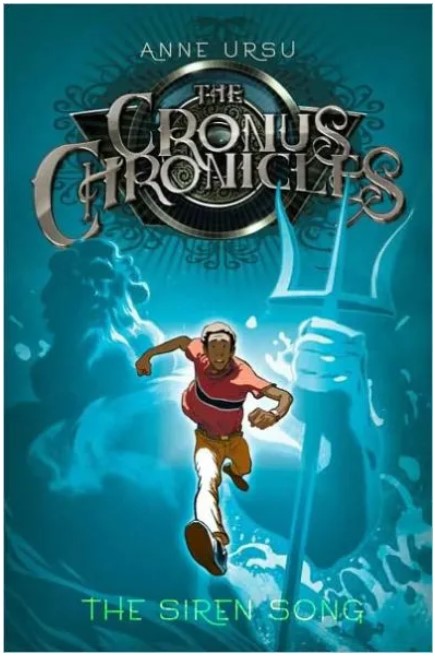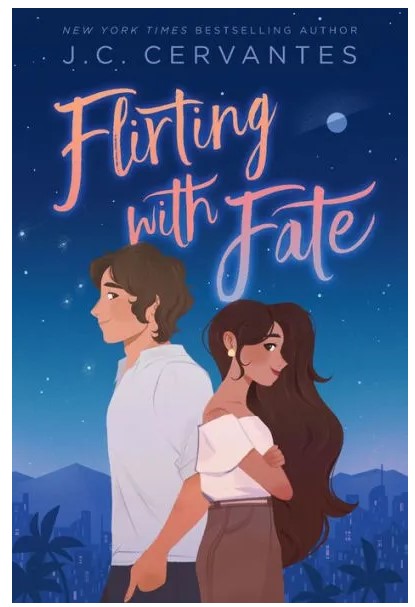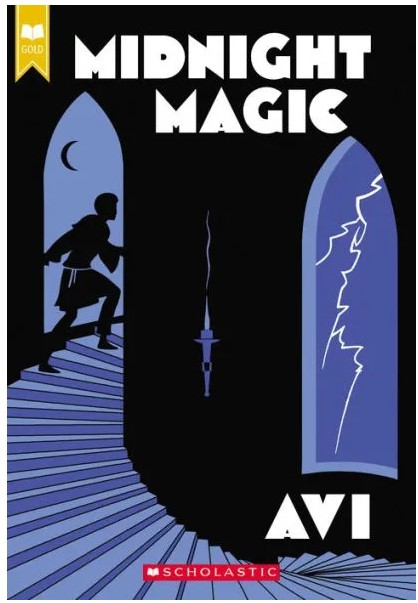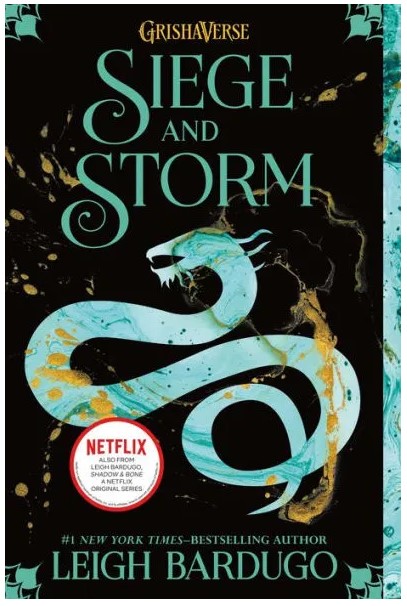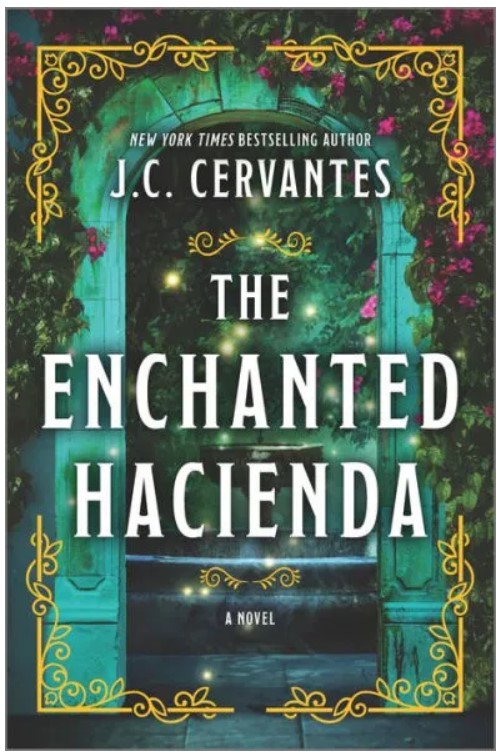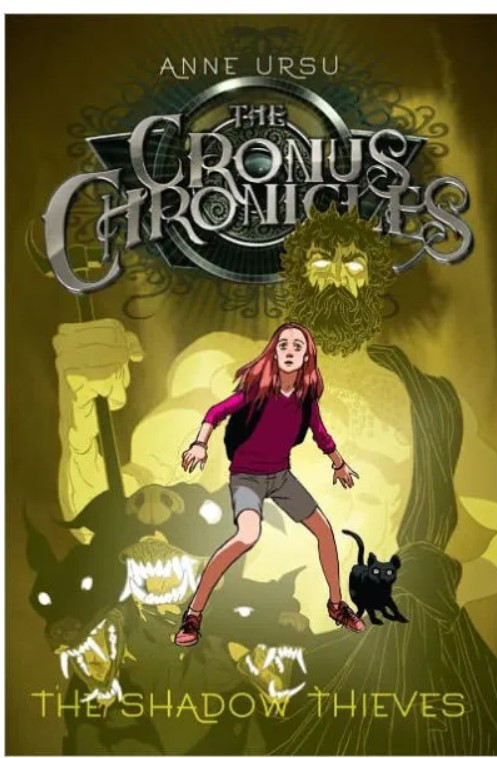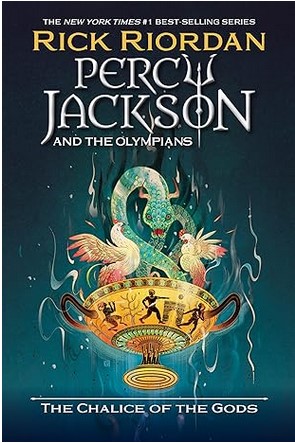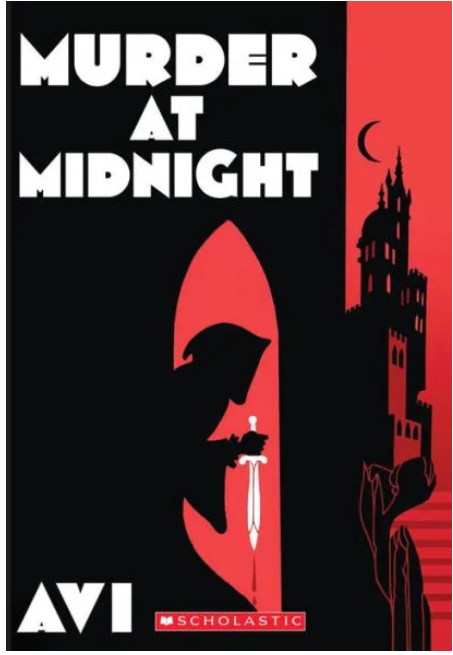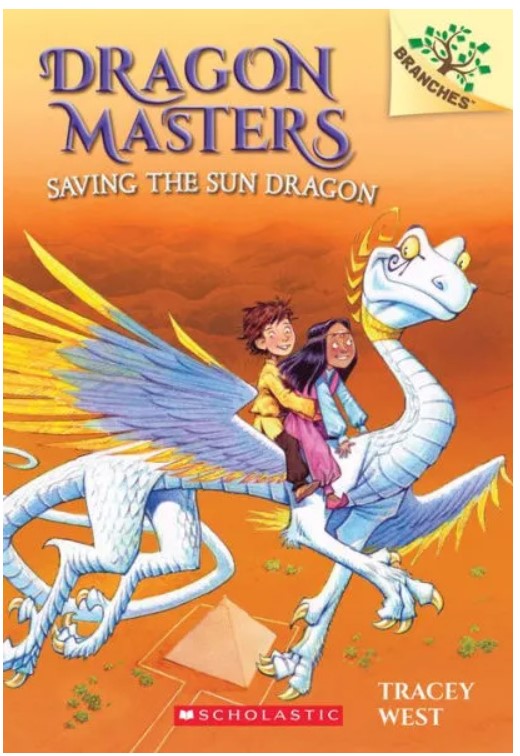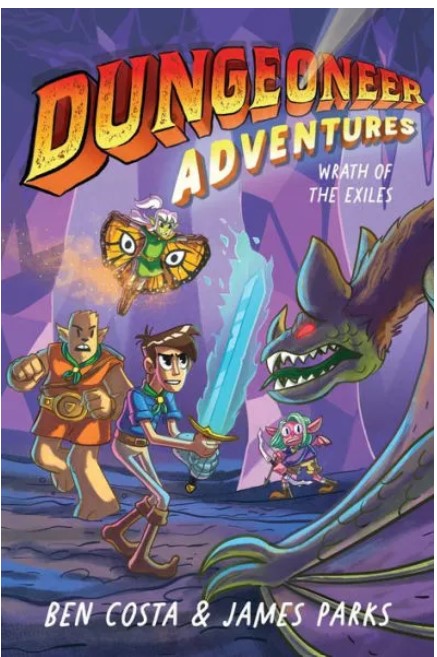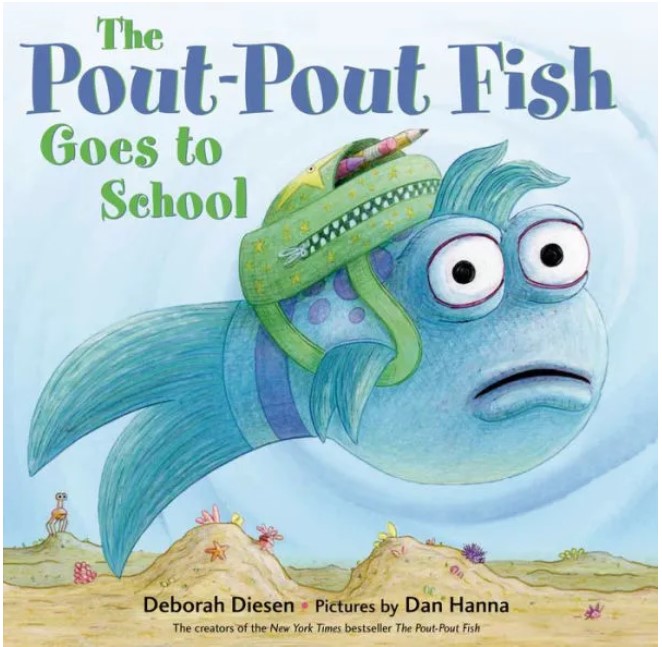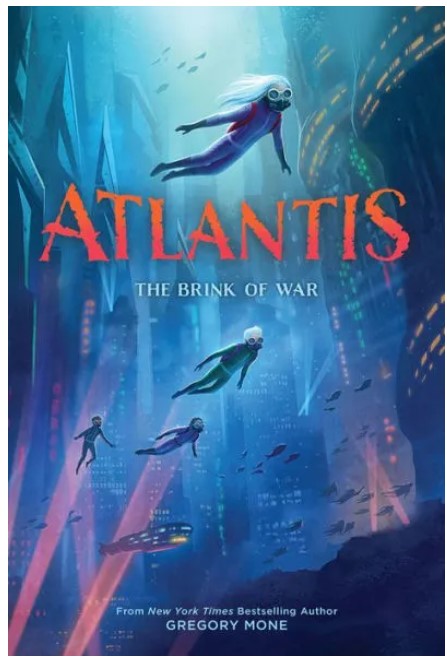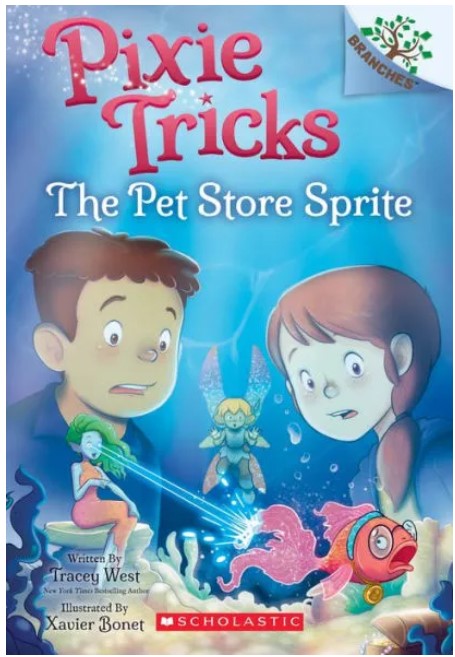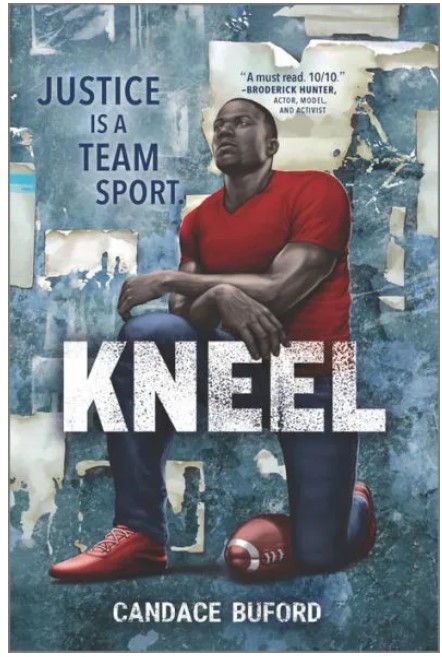Hilary Westfield is a pirate. In fact, she’s the Terror of the Southlands. She’s daring, brave, fearless, and . . . in a rut. Okay, maybe Hilary hasn’t found any treasure lately. And maybe she isn’t fighting off as many scallywags as she’d like. But does that mean she and her loyal crew deserve to be kicked out of the ranks of the Very Nearly Honorable League of Pirates (VNHLP)?
There is only one thing to do—find a daring mission worthy of her fearless reputation. With the help of her first mate Charlie, finishing school friend Claire, and a self-proclaimed intrepid gargoyle, Hilary sets sail on a swashbuckling expedition that may or may not involve a kidnapped Enchantress, bumbling inspectors, a mysterious group called the Mutineers, and—the most terrifying of all—a high Society ball.
To prove herself worthy of being a pirate, Hilary sets off on another fast-paced adventure with her friends Charlie and Claire. The three must follow the clues to find the missing Enchantress, Miss Pimm. This is complicated because while Charlie may not be afraid of walking the plank, he is afraid of Claire. Miss Pimm’s disappearance adds mystery to the story while Charlie’s fear of girls adds humor. The two plots converge to show the importance of supporting your friends through thick and thin.
The Terror of the Southlands brings back most of the characters from the first book, Magic Marks the Spot. However, several new and interesting characters are added to the cast. While Hilary’s focus is on being bold and daring, she also must navigate the complications of friendships, especially when there are disagreements. While the pirate elements of the story add excitement, the friendship element makes the story relatable. Through Hilary and her crew’s experiences, readers will see that pirates may not always follow the rules, but that doesn’t make them villains. While the true villains in the story are predictable, readers will still cheer when Hilary and her friends thwart their evil plans.
The book includes the Gargoyle’s memoir, which recaps the backstory of the series. Despite this, The Very Nearly Honorable League of Pirates Series is a continuous story that should be read in order. To help readers keep apprised of the inspector’s investigation, additional information is given in the form of reports written by the queen’s inspectors. While the reports do contain important information, the queen’s inspectors are portrayed as bumbling fools, which adds to the story’s humor.
Adventure-seeking readers will enjoy following Hilary and her crew as they take to the high seas in search of the Enchantress. The story’s humor and suspense will keep readers engaged until the very end. The story concludes with an enjoyable epic battle between the pirates and the villains. One fun aspect of the conclusion is that each character has a unique quality that makes them special. For instance, Hilary’s mother uses her skill as a hostess to get guests out of harm’s way, while Claire discovers her extraordinary ability to use magic, allowing her to vanquish the mutineers. In the end, Hilary proves that she is indeed bold and brave enough to be a pirate, even when she is wearing a dress that makes her look like a cabbage.
Sexual Content
- None
Violence
- Someone shoots cannonballs at Hilary’s boat, Squeaker. “Then a tremendous splash drenched [Hilary] from her hat feather to her boot buckles, and the Squeaker rocked perilously from side to side. . . Another cannonball splashed in front of the ship, nearly grazing the Gargoyle’s Nest on the way down. The gargoyle yelped and buried himself as well as he could under his hat.” The other ship pulls close to the Squeaker and the ship’s occupants invite Hilary and her crew to their house.
- The president of the VNHLP, Captain Blacktooth, orders Hilary to abandon her quest. When Hilary refuses, Captain Blacktooth’s crew “advance toward Hilary. . . She raised her cutlass as a pirate with a parrot on his shoulder stepped in front of her. . . But the pirate didn’t back away. Instead, he swung his sword toward Hilary, clipping the end of her braid and knocking her cutlass to the floor. . .” Hilary’s governess, Miss Greyson appears and stops the pirates from hurting Hilary.
- When Claire tries to use magical coins, they explode. No one is injured.
- At the beginning of the story, Hilary’s friend Jasper disappears. Later, Jasper reveals that he was kidnapped. The villains “confiscated my sword, bound my wrists and ankles, and tied me to a rather uncomfortable palm tree. . . The pirates kept me well fed, at least.” When the pirates decided to leave the island, Jasper got out of the ropes and followed.
- When Miss Pimm is kidnapped, Hilary tracks her down. Miss Pimm’s “wrists and ankles were bound with thick ropes, her eyes were closed, and she was snoring softly.” She is weak, but uninjured.
- Miss Pimm explains, “I tried to stick [the kidnappers] to the ground with my crochet hook, and I did stop a few of them, but the others pulled the hook out of my hand. They picked me up, which must have been quite a challenge for them, since I confess I was kicking and scratching in a terribly unladylike way.” Someone hit Miss Pimm on the head and she woke to find herself tied up.
- While trying to sneak into a house, Hilary and her friends meet a coachman named Lewis. Before he can yell, “Hilary pulled her cutlass from her waistband and pressed the tip into Lewis’s shoulder, not hard enough to slice through his livery, but hard enough to show she meant business.”
- While trying to get Lewis to leave his guard post, the gargoyle “leaned toward Lewis, baring his teeth, crossing his eyes, wiggling his ears, and flapping his wings so violently. . . His snout touched Lewis’s nose, and he let out a great breath. . .” Lewis faints.
- While at a party, Hilary and her friends discover that the Mutineers, Mrs. Tilbury, Philomena, and Nicholas conspired to kidnap Miss Pimm so Philomena could be the next Enchantress. “Mrs. Tilbury, Philomena, and Nicholas raised their magic piece in the air. Hilary raised her cutlass. . .” Suddenly, a group of pirates crash through the windows and a fight ensues.
- During the fight, “Miss Greyson was using her crochet hook to blast several of them off their feet, while Claire jabbed all the guards within reach with two of her very sharp hairpins. . .” Captain Blacktooth corners Hilary. “He held his sword frighteningly close to her chin, and his expression was so fearsome that she froze. . .” Another pirate jumps in and saves Hilary.
- Philomena uses magic to put Claire in the air. Then Philomena begins taunting Claire. “Hilary grabbed Philomena from one side just as Charlie grabbed her from the other. They both held up their swords. . .” Philomena drops Claire, who “crashed to the floor” and “yelped in pain.”
- Claire stops the pirate fight when she grabs a magic item and says, “I wish all you dratted Mutineers would disappear to some horrid little deserted island and leave me alone!” Then, “with a very loud pop, Philomena (and the other villains) vanished.” The battle is described over 13 pages.
Drugs and Alcohol
- Some of the adult pirates drink Grog.
- At a party, some of the guests have champagne.
- Hilary gives Miss Greyson a cup of ginger beer.
Language
- There is some name calling including sea cucumber, rogues, and slime.
- Drat and blast are used as exclamations frequently.
- “Oh, Crumbs” and “oh curses” are both used as an exclamation once.
- Pirates are often referred to as scallywags, scoundrels, and rapscallions.
- Hilary’s father, Admiral Westfield calls the Enchantress, “That Meddling Old Biddy.”
Supernatural
- Magical items exist. Claire tries to use a magic crochet hook to order “a tray of egg sandwiches.” Unexpectedly, a ball of light appeared and “flared up around Claire’s crochet hook so furiously that Hilary could hardly look at it. Then a tremendous bang shook the trees to their very roots, and the hook exploded.” Afterward, Claire’s fingers were red.
- While investigating Miss Pimm’s disappearance, Hilary uses magic to stop the queen’s inspectors. Hilary’s “cutlass floated out of its sheath and hovered in front of the inspectors, directing its point at their chest when they attempted to move. . . Hilary’s arms felt weak from the magic, and her breath was strained, but she had more than enough strength left to grin.” Hilary eventually lets the inspectors go.
- Hilary uses magic to pick a lock.
Spiritual Content
- None
